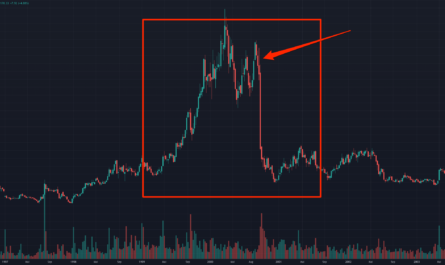When we launched this blog in August 2021, we published a comprehensive series of articles on the German pension system. In it, we not only addressed the issue of the pension gap or pointed out the problems surrounding demographic change, but of course also explained how the German pension system works. In addition, we made numerous suggestions for improvement and addressed how we ourselves deal with the pension problem and provide for our old age.
One thing is already certain: if you want to spend a financially carefree retirement, you either have to make additional provisions yourself or earn a very good salary during your working life. We have calculated just how much.
Collecting pension points, average salary
If you want to calculate how much money you need to earn on average during your working life, you first need to know how your future pension is calculated. It is made up of the average salary and so-called pension points. For each pension point received, one currently receives 36.02 euros per month in the old federal states, but 35.52 euros in the east. A person who has earned exactly the average salary within a calendar year receives a complete pension point. Those who earn less than this receive proportionately fewer points, while those who earn more than this receive slightly more points for their pension account. A maximum of two pension points can be collected per year.
For the year 2023, the German Pension Insurance has set an average salary of 43,142 euros gross in the Western and 41,966 euros gross in the East. Depending on the salary and the duration of work, a different number of pension points can thus be collected:
| Gross salary | Pension points after 30 years | Pension points after 35 years | Pension points after 40 years |
|---|---|---|---|
| 2.000 Euro | 16,69 | 19,47 | 22,25 |
| 3.000 Euro | 25,03 | 29,21 | 33,38 |
| 4.000 Euro | 33,38 | 38,94 | 44,50 |
| 5.000 Euro | 41,72 | 48,68 | 55,63 |
Since in the West there is the aforementioned 36.02 euros per pension point received, one receives the following gross pension depending on salary:
| Gross salary during working life | 30 years of working life Monthly gross | 35 years of working life Monthly gross | 40 years of working life Monthly gross |
|---|---|---|---|
| 2.000 Euro | 601,14 Euro | 701,33 Euro | 801,52 Euro |
| 3.000 Euro | 901,71 Euro | 1.052,00 Euro | 1.202,28 Euro |
| 4.000 Euro | 1.202,28 Euro | 1.402,66 Euro | 1.603,04 Euro |
| 5.000 Euro | 1.502,85 Euro | 1.753,33 Euro | 2.003,80 Euro |
Since a maximum of 2.03 pension points can be earned per year, an upper limit applies and thus a contribution assessment ceiling. Anyone earning 87,600 euros per year in the West cannot accumulate any further pension points for that year. In the east, the amount is correspondingly 85,200 euros, which corresponds to 7,300, or 7,100 euros per month.
The maximum pensions that can be collected over a 35-year working life are therefore around 2,560 and 2,926 euros.
Necessary monthly gross for the own desired pension
In order to be able to calculate your own desired pension now, you need to know that, in contrast to a few years ago, contributions and taxes will be due later for your pension. This share is always individual, which is why we have made an assumption below that is as realistic as possible. From these gross values, you can then calculate how many pension points you need for your desired pension.
What is already apparent here is that the pension points required for the 2,000 euro net desired pension can only be accumulated if you work for at least 35 years and always earn about twice as much as the average. If you only work for 30 years and earn at least twice the average, you can collect a maximum of 60.9 pension points. This is not enough to reach the required 68.30 pension points. So you will have to settle for less than 2,000 euros in net pension.
| Net desired pension | Gross desired pension | Required pension points | 30 years of working life Monthly gross | 35 years of working life Monthly gross | 40 years of working life Monthly gross |
|---|---|---|---|---|---|
| 1.000 | 1.125,49 | 31,25 | 3.744,97 | 3.209,97 | 2.808,72 |
| 1.500 | 1.757,55 | 48,79 | 5.846,94 | 5.011,66 | 4.385,20 |
| 2.000 | 2.460,33 | 68,30 | (8.185,00) | 7.015,71 | 6.138,75 |
As already mentioned, a net pension of 2,000 euros for 30 years of work is not achievable due to the income threshold. Theoretically, one would have to earn just under 8,200 euros per month. With 35 years of work, the net pension of 2,000 euros is achievable. However, to achieve this, just over 7,000 euros per month must be earned consistently – an income that only very few people are likely to actually achieve in their lifetime. Most should be able to collect a pension of around 1,000 to 1,200 euros later on with a salary of around 3,000 to 4,000 euros.
A pension of 2,000 euros is hardly achievable
Anyone who takes a closer look at these figures can only come to the conclusion that a generous, statutory pension in old age can only be achieved if one earns a relatively high salary and at the same time pays into the pay-as-you-go system for as long as possible. Even for a net pension of only 1,500 euros, you have to earn more than 5,000 euros gross every month for 35 years of work. If you temporarily lose your job or temporarily earn less, you will have to forfeit your pension later on. Even average earners can only dream of such figures and will probably never reach them. Old-age poverty and other social problems are virtually pre-programmed.
Additional, private provision is therefore imperative, especially since other factors, such as inflation or demographic change, also place an additional burden on the system. We can always create awareness of this and appeal to everyone to make additional independent provisions. In the end, however, everyone has it in their own hands…







